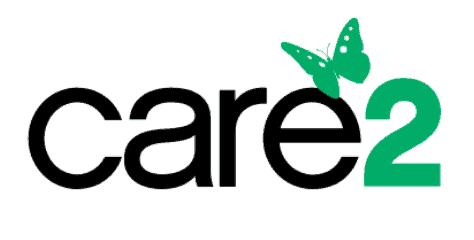Criminals are profiting from the trafficking and abuse of children in orphanages around the world. Traffickers, attracted by the funding orphanages receive from donations and organizations offering ‘voluntourism’ placements, effectively turn children into commodities by ensuring there is a constant supply of children available to attract funding.
‘Voluntourism’ – the practice of combining voluntary work with tourism – has become a popular trend,1 creating a boom in vacation packages involving volunteer work. It’s clear that organizations offering orphanage placements can play a role in ending the cycle of abuse fueled by demand for volunteer placements, which traffickers are exploiting to profit from the mistreatment of vulnerable children.
Poor families are vulnerable to being duped into giving up their children to orphanages with false promises of better care and an education. Instead, these children are often exploited, abused, malnourished, forced to work and sometimes re-trafficked to other orphanages to repeat the cycle and bring in more funds. Child trafficking into and across orphanages is a global problem.
Join us in asking volunteer tour operators to help stop orphanage trafficking by removing the financial incentive and making a strong statement against orphanage trafficking.
We are asking them to:
- stop offering orphanage placements to volunteers
- publish a statement outlining their commitment to end orphanage child trafficking, and
- join the worldwide movement to ensure children are raised in safe families empowered to care for their own children with the support of partners experienced in child protection.
A positive trend with unexpected consequences
Volunteer placement organizations have assigned thousands of volunteers across the world to projects bringing mutual lasting benefits to volunteers and communities. Although usually a small portion, some offer placements in orphanages.
We are not suggesting that they have placed, or promoted the placement of, volunteers in orphanages which exploit or traffick children. However, we believe their support is crucial to disrupting traffickers’ business model and breaking the cycle of exploitation.2
Troubling stories of abuse & exploitation
An estimated 5.4 million children are living in orphanages around the world.3 Yet 80% of them have at least one parent or family member who could look after them, with additional support where needed.4
It’s clear from these numbers that something doesn’t add up.
- In Cambodia, Sinet Chan was repeatedly beaten, raped, starved and forced to work on the orphanage director’s rice paddies and farms without pay. Now, she is a strong ambassador for the Cambodian Children’s Trust, telling her story and raising awareness of the potentially terrible conditions children face in institutions.
- In Haiti, some families were paid 75 USD to give their children away to orphanages on false promises their children would receive an education and opportunities for the future, only for them to end up living in slave-like conditions.5
- Vulnerable children being separated from their families and placed in orphanages to attract funding, volunteers and donations from well-meaning tourists is replicated across Southeast Asia and has also been reported on in Nepal and across Africa.6 7
- In one case in Nepal, a mother searching for her two children who she believed were in school, found them in an orphanage. The orphanage director then extorted the mother and insisted she pay him 144,000 rupees (1,440 USD) before he would release her children.8
Families living in poverty are vulnerable to being tricked into selling or giving their children to orphanages with false promises of better care and education. Yet, even in well-resourced orphanages, destroying lasting family-based relationships has serious detrimental effects on long-term development and psychological well-being. It should only ever be used as temporary care and as the last resort.
Community-based approaches: a better alternative
“He dressed us up looking poor so the visitors see us, they feel pity for us, and they donate more. But they don’t really know what was going on inside the orphanage.” Sinet Chan, Cambodian Children’s Trust ambassador, describing her experiences.9
Recognizing the risks facing children in orphanages, the government of Cambodia has launched a pilot program to reintegrate children into families. In July 2017, it finalized a decree which tasks officials with identifying vulnerable children and overseeing their reintegration into families.
Community-based approaches, which seek to place children into families and offer support and resources as-needed, offer a healthier model of care than institutionalization. Redirecting the compassion, energy and resources of caring volunteers and organizations into community-based programs can end the cycle of abuse perpetrated by traffickers and exploitative orphanages.
Together, we can have an impact
Global Vision International, African Impact and others 10 are anti-trafficking leaders in the tourism sector who have already committed to stop placing volunteers in orphanages. This is how they are working to end trafficking and support children in institutions:
“We hope to work toward ending the perpetuation of child trafficking and the separation of children from family care. We are currently working with our local partners to assist them with transitioning to alternative solutions that aim to reunify children with their families.” – Global Vision International 11
“We took the decision to stop working with a number of orphanages […] and, as of 2018, no longer have any affiliation with this type of institution. This decision was not taken lightly and was only done when sustainable and practical solutions were in place to care for the children.” – African Impact 12
With your help, we can get more volunteer tour operators to take a strong stand against orphanage trafficking. Join the call today and help end child trafficking.
Further resources:
https://www.wearelumos.org/
https://bettercarenetwork.org/rethink-orphanages
https://ecpat.org/
https://pamojaleo.org/
https://www.bergmanlegal.com/child-sexual-abuse-resources/
Notes:
- https://www.reuters.com/article/us-travel-volunteers-charities/boom-in-voluntourism-sparks-concerns-over-whether-the-industry-is-doing-good-idUSKCN0P91AX20150629 ↩
- For the avoidance of doubt, Freedom United is not alleging that these organizations knowingly exploit or promote the trafficking or abuse of children. Freedom United is calling upon them to use their important role in supporting communities around the world to bring an end to this cycle of exploitation. ↩
- https://www.wearelumos.org/ ↩
- https://www.wearelumos.org/news-and-media/2018/04/16/bogus-orphan-trade-fuelled-voluntourism/ ↩
- https://www.reuters.com/article/us-haiti-children-trafficking/haiti-orphanages-hotspot-of-child-trafficking-abuse-says-charity-idUSKBN19D2PO ↩
- http://www.ecpat.org/wp-content/uploads/2016/10/Voluntourism-and-child-trafficking-into-orphanages.pdf ↩
- https://www.wearelumos.org/news-and-media/2018/04/16/bogus-orphan-trade-fuelled-voluntourism/ ↩
- http://www.ecpat.org/wp-content/uploads/2016/10/Voluntourism-and-child-trafficking-into-orphanages.pdf ↩
- https://www.theguardian.com/world/2017/aug/19/the-race-to-rescue-cambodian-children-from-orphanages-exploiting-them-for-profit ↩
- https://www.vsointernational.org/news/blog/jk-rowling-is-right-%E2%80%93-children-deserve-better-than-orphanage-%E2%80%9Cvoluntourism%E2%80%9D ↩
- https://www.gvi.co.uk/why-gvi/orphanage-volunteering/ ↩
- https://www.africanimpact.com/childcare-policies/ ↩




Make your voice heard
Comment
73
Share this petition